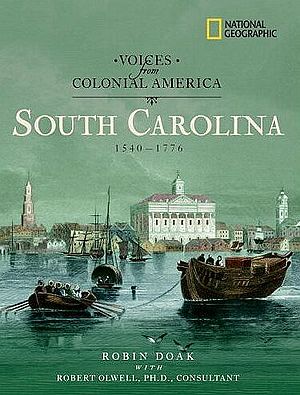Difference between revisions of "South Carolina"
(update) |
(update) |
||
| Line 49: | Line 49: | ||
*Sen. [[Lindsey Graham]] (R) | *Sen. [[Lindsey Graham]] (R) | ||
*Sen. [[Tim Scott]] (R) | *Sen. [[Tim Scott]] (R) | ||
| − | *Rep. [[ | + | *Rep. [[Joe Cunningham]] [D, SC-01] |
*Rep. [[Joe Wilson]] [R, SC-02] | *Rep. [[Joe Wilson]] [R, SC-02] | ||
*Rep. [[Jeff Duncan]] [R, SC-03] | *Rep. [[Jeff Duncan]] [R, SC-03] | ||
| − | *Rep. [[ | + | *Rep. [[William Timmons]] [R, SC-04] |
*Rep. [[Ralph Norman]] [R, SC-05] | *Rep. [[Ralph Norman]] [R, SC-05] | ||
*Rep. [[James Clyburn]] [D, SC-06] | *Rep. [[James Clyburn]] [D, SC-06] | ||
Revision as of 01:35, January 19, 2019
| Capital | Columbia |
|---|---|
| Nickname | The Palmetto State |
| Official Language | English |
| Governor | Henry McMaster, R |
| Senator | Lindsey Graham, R (202) 224-5972 Contact |
| Senator | Tim Scott, R (202) 224-6121 Contact |
| Ratification of Constitution/or statehood | May 23, 1788 (8th) |
| Flag of South Carolina | Motto: "Animis Opibusque Parati" (Prepared in mind and resources) |
South Carolina was the eighth state to enter into the Union. The capital city is Columbia.
South Carolina is a key primary state in Presidential Elections, in that it holds the first presidential primary within the Southern United States.
South Carolina relies heavily on the textile industry and trade with foreign countries, especially trade with Germany. In December 2001, it had 299,100 manufacturing jobs. This fell by over 15% to 253,000 manufacturing jobs in December 2006. The state also has fewer than 38,000 textile manufacturing jobs left, while ten years ago it had 80,000 textile jobs.
While non-farm employment overall has increased, the manufacturing jobs were much higher-paying than the service-related jobs. The average weekly wage for non-supervisory workers in January 2007 were:[1] May 23, 1788 (8th)
- $518 in textile mills
- $404 in apparel facilities
- $250 in the leisure/hospitality sector.
On December 20, 1860, South Carolina became the first state to secede from the Union. Several months later, South Carolina's Fort Sumter, located near Charleston, became the site of the first shots of the Civil War were fired.
The state Constitution of South Carolina, like all of the other 50 states, acknowledges God or our Creator or the Sovereign Ruler of the Universe. It says:
- We, the people of the State of South Carolina, in Convention assembled, grateful to God for our liberties, do ordain and establish this Constitution for the preservation and perpetuation of the same.
History
South Carolina and North Carolina both claim to be the birthplace of Andrew Jackson, the seventh President of the United States.
Politics
South Carolina is usually a red state in presidential elections; the last Democrat to win the state was Jimmy Carter in 1976. Before Jimmy Carter, a Democrat hadn't won since John F. Kennedy in 1960.
Elected Officials
Federal
- Sen. Lindsey Graham (R)
- Sen. Tim Scott (R)
- Rep. Joe Cunningham [D, SC-01]
- Rep. Joe Wilson [R, SC-02]
- Rep. Jeff Duncan [R, SC-03]
- Rep. William Timmons [R, SC-04]
- Rep. Ralph Norman [R, SC-05]
- Rep. James Clyburn [D, SC-06]
- Rep. Tom Rice [R, SC-07]
Statewide
- Governor Henry McMaster (R)
- Lt. Governor Kevin Bryant (R)
- Secretary of State Mark Hammond (R)
- State Treasurer Curtis Loftis (R)
- Attorney General Alan Wilson (R)
- Comptroller General Richard Eckstrom (R)
- Superintendent of Education Molly Spearman (R)
- Adjutant General Bob Livingston (R)
- Agriculture Commissioner Hugh Weathers (R)
References
- ↑ Source: U.S. Department of Labor
| |||||
